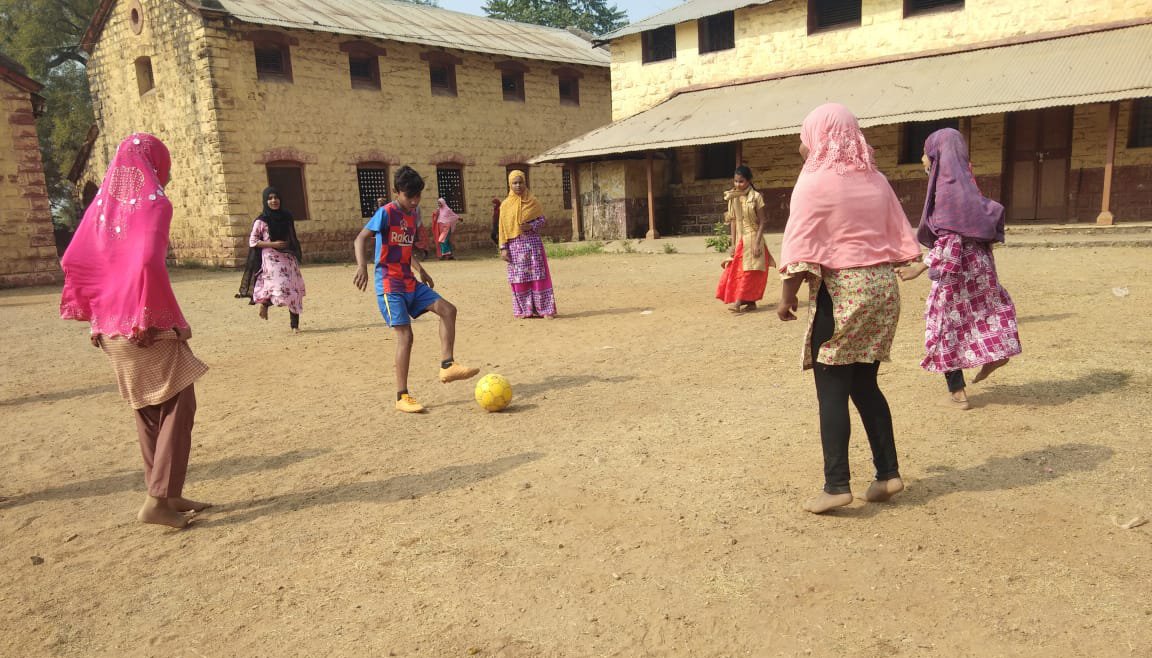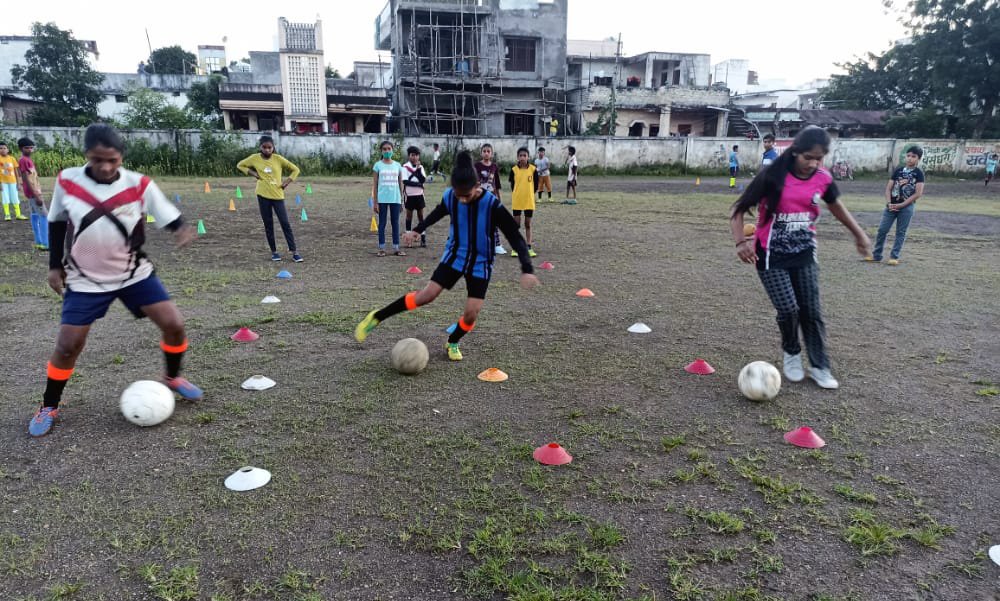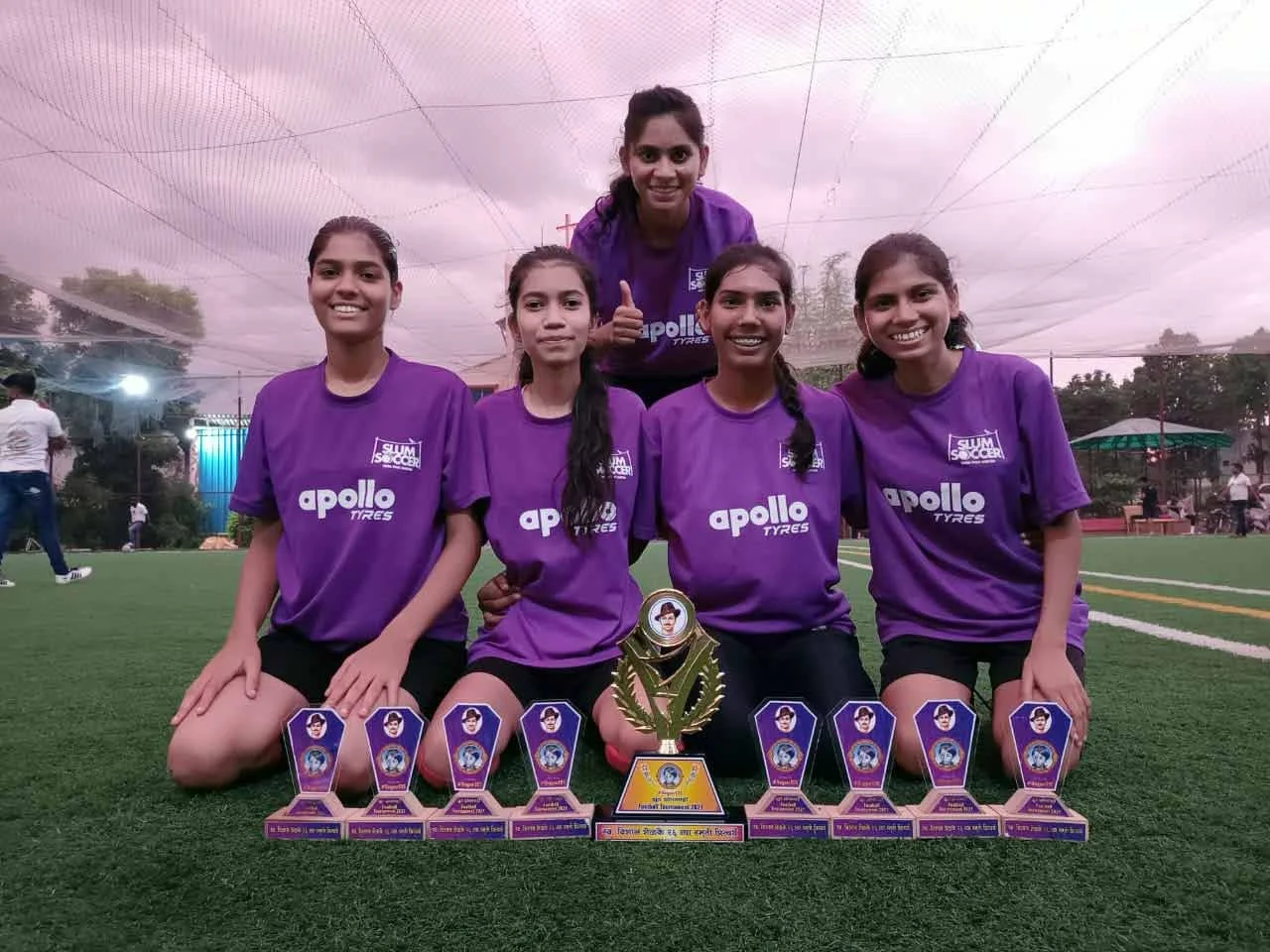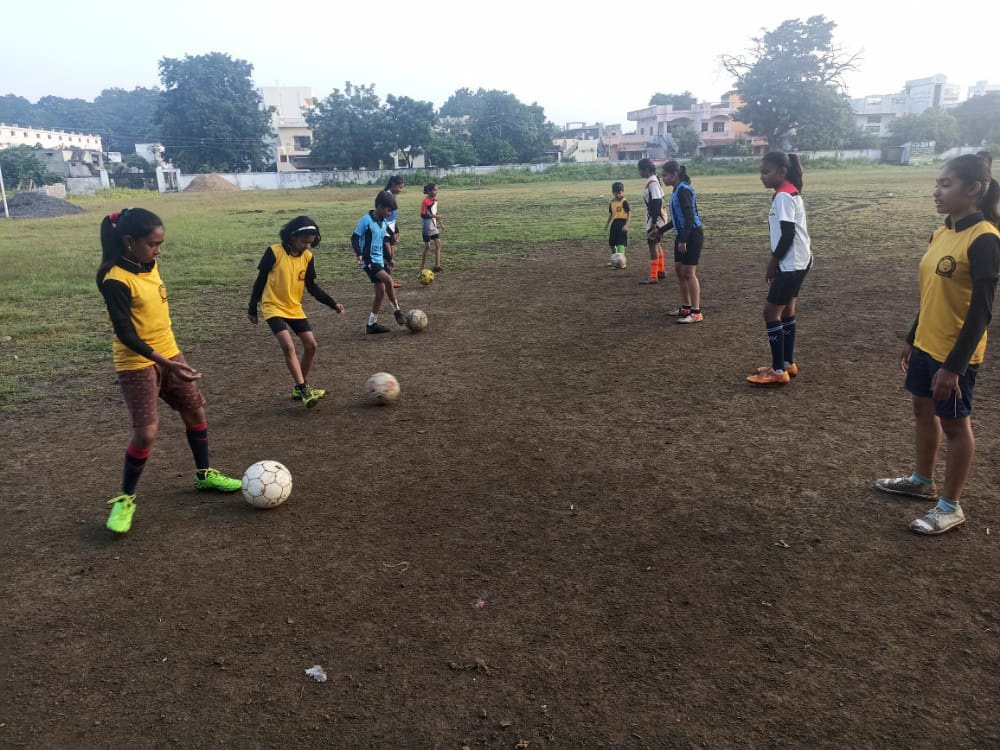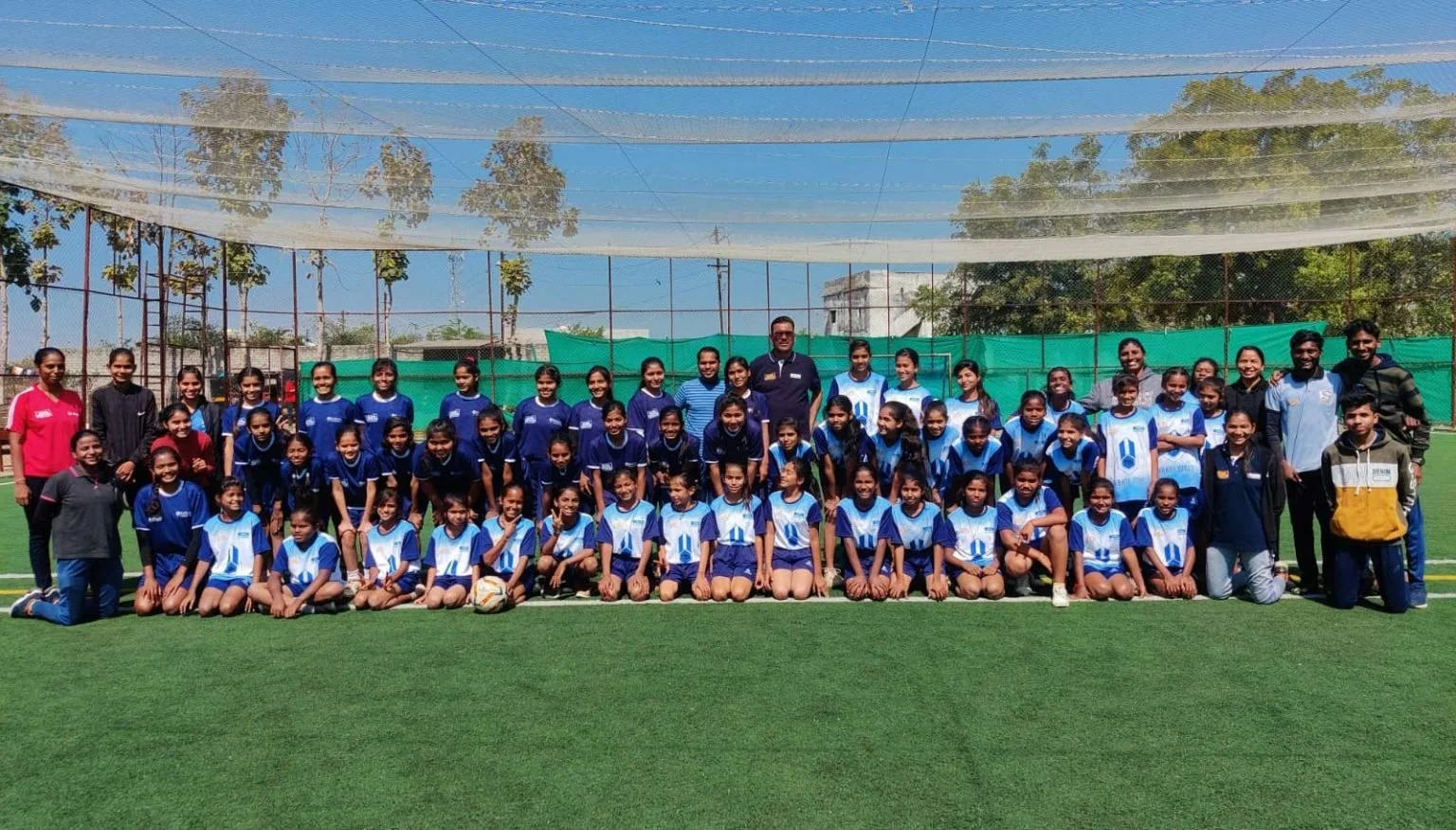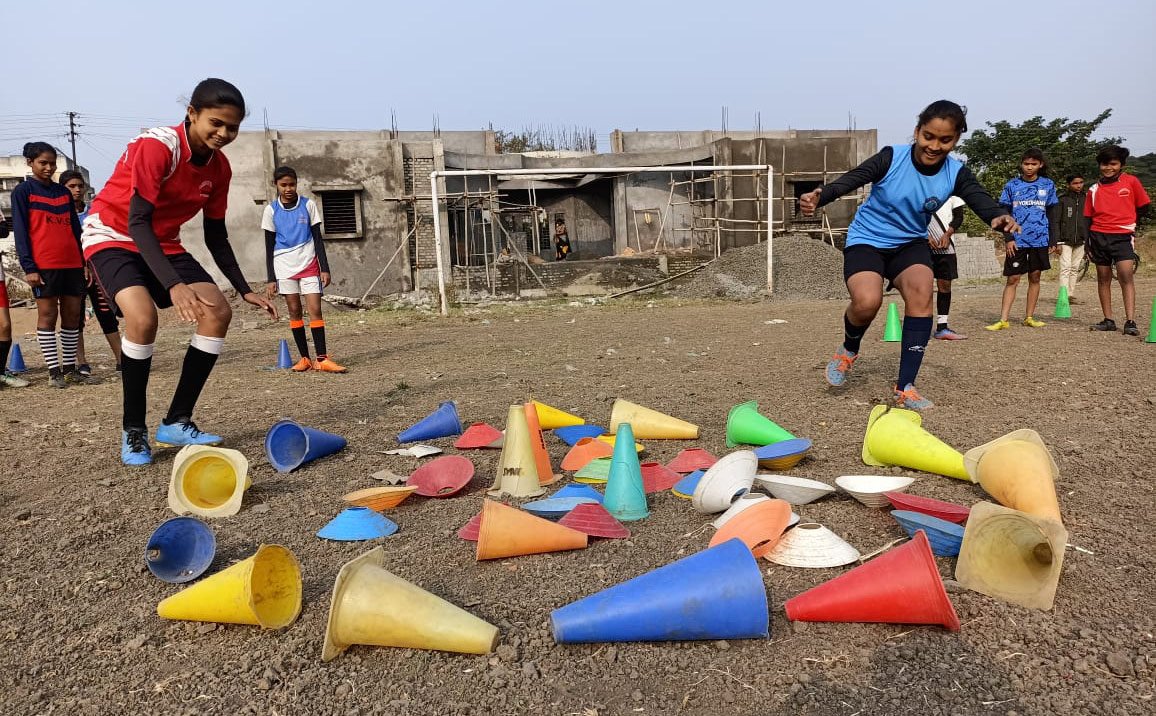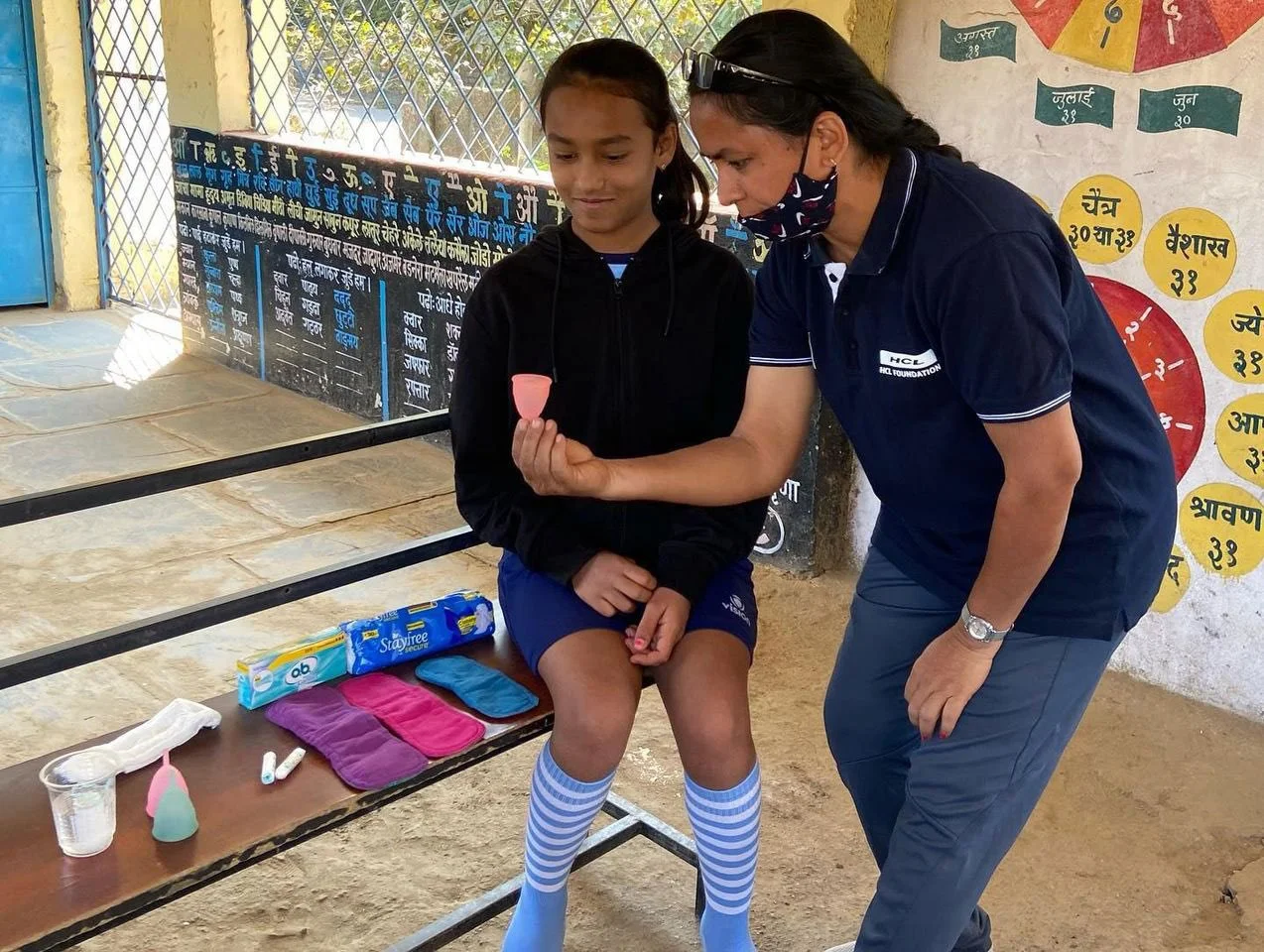More Than A Game: India
|Photo: Slum Soccer
At the Homeless World Cup, we believe that football is more than a game. In our More Than A Game series, we put a spotlight on our partners who are using football to create change in communities.
“If you educate a man, you educate an individual, but if you educate a woman, you educate a nation.”
This African proverb is attributed to a Ghanaian scholar, but the message is global.
Someone who believes strongly in this message is Pankaj Mahajan from Slum Soccer who helps to run their women and girl’s programmes in India.
“The aim of the programme is to create gender equality in society.”
Initially running programmes for men, the team at Slum Soccer were inspired to start a women’s programme after seeing female teams at the Homeless World Cup in Milan in 2009.
The following year they started their first mixed programme, but it wasn’t simple to start a women’s football programme in India. They received a backlash from many of the communities where they tried to work.
“These girls belong to very deprived communities, slum areas, areas notorious for child marriage.”
Pankaj explained that in many of the communities where they were working, girls were expected to be married between the age of 10 and 15.
“Slowly we realised, after a lot of work, that girl’s participation was affected due to community pressure on how girls and boys can play together. Parents and community perspective was really hampering the participation of girls. So, we came together and thought what else can we do? This is how the ‘Shakti girls’ programme was born.”
|Slum Soccer’s Shakti Girls programme gives girls across India an opportunity to play football. Photo: Slum Soccer
Women and girls only programme ‘Shakti girls’ use football as a tool to encourage girls and women to feel empowered, gain confidence, while developing communication and teamwork skills.
When they started the programme in 2010 there were no girls participating in the school championships, now there are hundreds. Rates of child marriage have also begun to fall, with girls able to choose to marry later.
THE SHAKTI GIRLS
The Shakti girls programme helps girls and women to become leaders. Sejal Sonare is one of them. She’s become a trailblazer for girls in her community after originally being told as a girl she ‘shouldn’t be playing football’.
When coaches came to her school, Sejal hadn’t ever participated in sport or played football before. There had never been the opportunity.
“When I started playing, I couldn’t stop. I always wanted to play. I feel really good when I play football. I think football is my strength.
“I wasn’t supposed to play, my parents had told me not to, but I played without their permission. After a lot of convincing with the help of the Slum Soccer coach, my parents agreed.
“My uncle and the local community committee didn’t understand why I wanted to play football and asked my parents “Why do you send her to play football?”
Despite the challenges from people in her village and extended family, Sejal continued to play. She even represented her school playing centre forward at both the state and national championships.
|Sejal (top centre) and her team mates with their trophies. Photo: Slum Soccer
She was determined on the pitch too: “At the district tournament I was injured, and I wasn’t supposed to play but I convinced my coach I could play, and I scored the only goal in the game which we won. That game meant we made it to the state tournament.”
Slowly the opinion of girls playing football in her community started to change. When Sejal came back from the national tournament, where she’d been the only person from her community to take part, the village council threw a party in her honour.
“That was a really, really proud moment for me.”
Sejal explains that as well as the football, the programme is helping girls to feel confident and make their own decisions.
“Girls get married young at 16 or 17, too soon, and that is why they struggle a lot in life – that’s why it’s important to have programmes like these.”
CHANGING PERCEPTIONS
Now in the community, thanks to Sejal and the coaches from Slum Soccer, it’s common to see girls playing football. Girls take part in the school programme every year and are allowed to wear shorts and play with boys.
|It’s now a common sight to see girls playing football in Sejal’s community. Photo: Slum Soccer
Pankaj smiled as he told us about how much Sejal has grown in confidence since he first met her.
“She was very shy; she wouldn’t say a single word when I started to coach her. She was very small. Slowly I saw her transition from very shy to the very confident girl she is today. She has really become a role model in her community.
“She has played at school and state and national level, but she did not stop there. She keeps playing football, but she wants other girls to also experience this beautiful game of football.”
Sejal plays football with girls from her area outside her house. It doesn’t matter if it gets dark, at 7pm or 8pm, they are still playing.
“Being in the community where girls were not supposed to play football, and now it’s being run by women. There are opportunities for girls because of leaders like her,” Pankaj said.
CHALLENGING TABOOS
Community perceptions towards women and girls playing football isn’t the only barrier to the sport. The taboos surrounding menstruation make many girls and women think it’s not possible to play sport or do exercise while on your period.
Slum Soccer started a programme teaching girls about menstruation, helping them to overcome the taboo.
Since it started, Mahima B and Shiba Markas have worked with more than 4,000 girls in Nagpur alone, helping them to understand menstrual hygiene and get support.
|The Slum Soccer team have reached more than 4,000 girls in Nagpur alone. Image: Slum Soccer
Mahima explained: “Your body is your own and if your body feels relaxed by stretching or playing, you can go ahead, you are the best person to decide for yourself.”
They are also educating the male coaches, giving them the tools, and understanding to support women and girls.
“It is very personal; we have seen girls struggling in sports due to menstruation and we saw that our male coaches weren’t aware of it. And the girls would miss out on the sessions and the tournament.
“We started this practice with our male coaches, advising them to even just talk to girls. Let them know you’re there and if they don’t want to do a particular warm up, if they’re not feeling ok, that day you can take something else.”
SPEAKING UP
Mahima grew up hiding her periods and being told to stay quiet. She’s determined that the girls on her programme will feel free and confident to use their voices and make their own decisions surrounding their menstrual health.
|“With the game-based method we are using, there are no limits on what we can talk about.” Image: Slum Soccer
“We were so fearful, always in India the girl has been told to never open up. Never know that she has a voice to speak, so any decision, whether it’s her period, whether it’s her own life or what she wants to do, they just say: ‘Be quiet. You are not supposed to decide.’
“My journey started and even though I knew I had choices, someone else would make those choices for me.
“These are the girls who are going to be future mothers and future leaders, these are the ones who should know they have a voice, and they need to speak about it.
“What sport and football has done, it has really changed us and let us know that we have a voice. We need to speak up, if we don’t the future generations are never going to be able to feel that way.”
Shiba agrees: “Football is the best way to pass on different messages related to menstruation. With the game-based method we are using, there are no limits on what we can talk about.
“Originally the girls weren’t opening up, they were shy and when we asked them when they first got their period, they weren’t saying anything.”
By telling them her story of when she first got her period, Shiba explained, the girls started to speak and they haven’t stopped talking since.
A PROGRAMME FOR ALL
They are making sure that girls aren’t only comfortable talking about their periods but have access to sanitary products too.
During the pandemic, sanitary products weren’t deemed ‘essential’ by the Indian government, so Mahima and her team decided they needed to do something about it. They made sure that all their players had access to sanitary products by distributing hygiene kits.
|Image: Slum Soccer
This has expanded, they’re now making sure girls in schools and the communities where they work have access to sanitary products, particularly supporting girls who are living in rural areas.
For Shiba it was important to make it inclusive and open to all. So, when they started working with a school for deaf girls, she started to teach herself sign language. First starting by using YouTube, she then went on to complete courses in Level 1 and Level 2 in Indian Sign Language.
Recently she did a presentation for 250 girls who are deaf in sign language. At the end of the presentation there were so many questions because it was the first time that the girls had been taught about menstruation. Many of the girls wanted to know more about alternatives to sanitary pads, they’d never been told about them before, which limited what they could do during their periods. Now she’s recording her sessions so that they can reach even more girls who are deaf.
Mahima said the main message for the girls is that “periods can never stop me from dreaming or achieving what I want.”
GENDER EQUALITY STARTS ON THE PITCH
Slum Soccer are always coming up with new and innovative ways to tackle and raise awareness of gender inequality and push for change. Their latest is the Gender Equality Cup where if a male player scores, a female player must also score for it to count.
Girls and boys can now play together thanks to the changing perceptions in the community.
Pankaj explained: “We are creating rules and situations where we encourage and foster gender equality in day-to-day life in the communities.”
With the support from Mahima, Shiba, Pankaj and inspiring young leaders like Sejal, sport in India is becoming more inclusive. Through education and football, they are making society more equal and showing that there is always a place for girls and women on the pitch.
Slum Soccer is our national partner in India, each year they support thousands of girls like Sejal to play football, grow in confidence and learn new skills. They are hoping to bring both men and women’s teams to the Homeless World Cup in New York in 2022.
Words: Rebecca Corbett
Images: Slum Soccer

